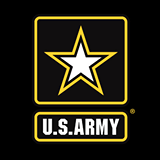
Meet Your Army: Veterinarian preparing for deployment
By U.S. Army






Maj. Kristina McElroy will deploy to the Horn of Africa this month to augment
an Army Reserve civil affairs battalion as a veterinarian.
Although she grew up on a small farm in central Missouri raising chickens
and rabbits for 4H, it was really science and medicine that fascinated
her, she said. In 7th grade, she briefly thought about following in her
father's footsteps to be a physician, but joked that she really didn't
like being around sick people all that much.
Veterinary science was the answer: "I like problem-solving,"
she said. "I'm a disease detective."
In Africa, she plans to work with local veterinary providers to relay
best practices from the U.S. and help provide them continuing education
in animal husbandry, livestock production and related fields.
While many think of overseas veterinary engagements as deworming, vaccinating
and treating the animals of local villagers, McElroy says it goes well
beyond that. Veterinarians try to help local professionals establish sound
public health policies as part of civil governance.
When not deployed, McElroy works as a DOD civilian, helping track such
veterinary assistance, known as Global Veterinary Engagements or GVEs.
She also serves as the veterinary subject-matter expert to coordinate
Defense Support of Civil Authorities in the U.S., known as DSCA. Her Army
Reserve assignment is with the 354th Civil Affairs Brigade in Riverdale, Maryland.
McElroy says she feels lucky that her duties as a reservist intertwine
with her responsibilities as a civilian employee. She enjoys her job and
looks forward to working closely with host-nation vets in a challenging
environment. She provided the following information in her own words:
Nicknames: Kris, Mac
Hometown: Jefferson City, Missouri
Favorite thing about hometown: It's the capital of Missouri and Central
Dairy Ice Cream is the best! Local dairies produce the milk Central Dairy
uses to make great flavors such as Tiger Stripe and mint chocolate chip.
Least favorite thing about hometown: Hard to find good sushi in a landlocked state.
When I was 10, I wanted to be a teacher when I grew up.
Childhood hobbies: 4H, reading, horseback riding
Current hobbies: traveling, reading, gardening
What motivated you to join the Army: I was motivated to serve because
I wanted to challenge myself and, this sounds cheesy, I felt "called"
to serve. While I had considered the Veterinary Corps when I was in Veterinary
School, full-time active-duty service wasn't a good fit for a soon-to-be
veterinarian interested in population herd health and food animal medicine.
However, as a Reservist, it was a great fit! My civilian and military
careers complement each other and I think make me a better employee all around.
Favorite line from favorite movie: "laugh it up fuzzball" from Star Wars
If you caught me singing in the car, I'd probably be singing some
oldies like the Righteous Brothers or Beach Boys or rocking out to Tom Petty.
Personal strength: I can eat almost anything (helpful trait to have in
the military, have you tried those omelet MREs?)
Challenges faced in military: The Army Veterinary Corps is a small, but
very important part of the Army and the Department of Defense, yet many
service members don't realize that we ensure their food protection
as well as take care of military working dogs. Veterinary personnel have
an important role in force protection for the entire DoD. As a veterinarian,
who works for the Department of Defense as a civilian, as well as a Reservist,
I relish the challenge of taking care of Service Members and beneficiaries
from "behind the scenes" and those opportunities to share the
incredible importance of what we do to keep people healthy. After all,
it isn't just the Army that marches on their stomach, but the Air
Force, Marines and Navy too. (did I mention those MREs?)
What do you consider your most significant achievements in the Army: Some
of my most significant achievements in the Army are both professional
and personal. Professionally, the privilege of serving alongside fellow
Soldiers and leading them is an honored achievement. Personally, being
selected as one of only 11 Reservists to attend Command and General Staff
College in residence at Fort Leavenworth was a highlight.
What are the keys to leadership? The keys to leadership include honest
communication and living the Army values while having a confident, positive
attitude and provide consistent, clear guidance. Successful leaders need
to continuously develop themselves and encourage that in their employees
and subordinates as well.
What do you consider the most important Army value? I use the Army values
in both my civilian and my military life. In my opinion, there isn't
just one "most important" Army value. Just as the Army relies
of different types of Soldiers to work together as a whole, so do the
Army values work together to shape the Soldier and the organization. Some
days, and some situations, require me to draw upon the strength of different
values such as integrity and respect in the face of adversity, and other
days require duty and selfless service.
